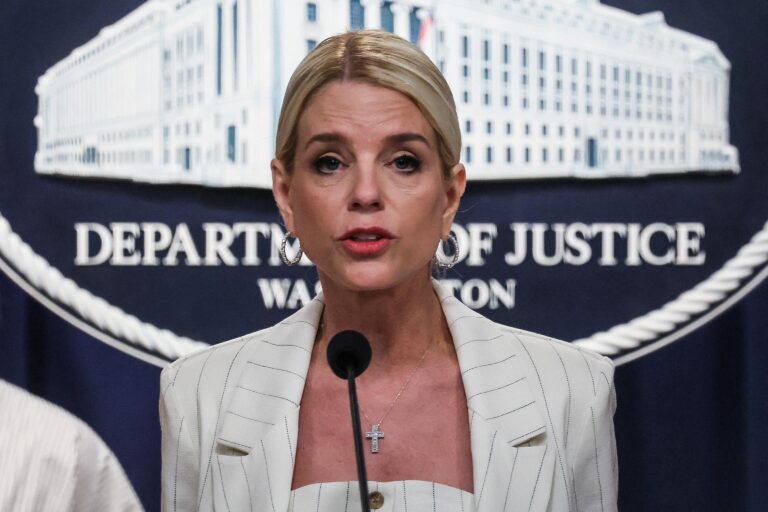Trump Administration’s Legal Challenge to California’s Transgender Athlete Policies: A Nationwide Turning Point
Federal Government Takes Legal Action Against California’s Transgender Sports Policy
The Trump administration has launched a pivotal lawsuit targeting California’s inclusive policy that permits transgender athletes to compete according to their gender identity.This legal confrontation intensifies the broader national discourse on transgender rights in sports, pitting federal authorities against a state known for progressive stances on gender inclusion. While advocates praise California’s approach as a milestone for equality, federal officials contend that such policies may compromise fairness in competitive athletics. Beyond the immediate legal dispute, this case threatens to disrupt billions of dollars in federal funding allocated to California’s educational and athletic programs.
Key aspects of this legal conflict include:
- Risk to Federal Funding: Potential withholding or reduction of significant federal grants supporting schools and sports initiatives.
- Legal Ramifications: The lawsuit could establish precedents influencing transgender athlete policies across the United States.
- Societal Consequences: Heightened polarization among communities, athletes, and policymakers regarding gender identity and sports participation.
| Stakeholder | Primary Concern | Possible Outcome |
|---|---|---|
| California State Authorities | Upholding inclusive sports policies | Preservation of state autonomy |
| Transgender Athletes | Access to equitable competition | Uncertain participation rights |
| Federal Government | Maintaining competitive fairness | Enforcement of restrictive policies |
Financial Stakes: How Federal Funding to California’s Education and Sports Programs Is at Risk
The lawsuit threatens to cut off billions in federal funding that California receives under programs like the Every Student Succeeds Act (ESSA) and Title IX. These funds are critical for supporting a wide array of educational and athletic initiatives, including infrastructure upgrades, youth sports leagues, and diversity training for educators and coaches. Federal agencies have warned that failure to align state policies with federal regulations on transgender athlete participation could result in significant financial penalties.
Potential immediate impacts of funding reductions include:
- Decreased support for after-school sports leagues, limiting opportunities for student participation.
- Reduction in educational equity grants, which assist marginalized and underserved student populations.
- Cutbacks in specialized training programs aimed at fostering inclusive environments in schools and athletic organizations.
Below is an estimated breakdown of federal funds at risk for the 2024 fiscal year:
| Funding Category | Estimated Amount at Risk |
|---|---|
| Education Grants | $1.3 billion |
| Youth Sports Funding | $800 million |
| Coach and Staff Progress | $160 million |
Legal Contention and Broader Civil Rights Implications
The core of the lawsuit revolves around the interpretation of Title IX and the Equal Protection Clause of the U.S. Constitution. The federal government argues that California’s policy allowing transgender athletes to compete based on gender identity may infringe upon the rights of cisgender female athletes by creating competitive imbalances. This legal challenge has sparked a nationwide debate on how civil rights laws should evolve to address gender identity issues while balancing fairness in sports.
The outcome of this case could have sweeping consequences beyond athletics, potentially influencing federal funding tied to compliance with anti-discrimination laws in education and healthcare. Below is a summary of possible verdicts and their implications:
| Judgment | Impact on Civil Rights | Financial Consequences |
|---|---|---|
| Victory for California | Strengthens protections for transgender individuals under Title IX | Continued receipt of federal funds |
| Federal Government Prevails | Limits transgender athlete participation; narrows Title IX scope | Potential loss of billions in federal grants |
| Negotiated Settlement | Partial protections with defined eligibility rules | Possible partial funding reductions |
- Legal analysts warn this case could redefine civil rights enforcement in education and sports nationwide.
- Advocacy organizations caution that a federal win might encourage similar restrictive policies in other states.
- State leaders stress the importance of maintaining both inclusion and fairness in athletic programs.
Strategic Guidance for Educational and Athletic Stakeholders Amid Litigation
Educational institutions, sports organizations, and policymakers must proactively engage legal experts to navigate the complexities of this evolving litigation. Staying abreast of judicial developments and understanding the interplay between federal mandates and state policies will be crucial.Schools and athletic leagues should review their current guidelines and prepare to adjust swiftly in response to court rulings.
Collaboration with community advocates and inclusion groups can provide valuable perspectives and support during this uncertain period. Recommended strategies include:
- Conducting regular legal compliance reviews to align with emerging federal and state standards.
- Fostering clear communication with affected communities to address concerns and build trust.
- Investing in thorough training programs focused on diversity, equity, and legal obligations.
- Closely monitoring funding streams and preparing contingency plans for potential financial shortfalls.
| Focus Area | Recommended Actions |
|---|---|
| Legal Compliance | Ongoing audits and policy updates |
| Policy Versatility | Adaptive frameworks to accommodate legal outcomes |
| Community Relations | Inclusive forums and feedback channels |
| Financial Management | Contingency budgeting and resource reallocation |
Looking Ahead: The Broader Impact of the Legal Dispute
The Trump administration’s lawsuit against California’s transgender athlete policies represents a critical juncture in the national conversation on gender identity and sports participation. With billions of federal dollars potentially at stake, the case’s resolution will likely influence the future of inclusivity policies and state-federal dynamics across the country. As both parties prepare for a contentious legal battle, the outcome may establish landmark precedents shaping how transgender rights are recognized and regulated in athletic and educational settings nationwide.




